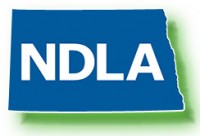The Association for Computing Machinery (ACM) is a US-based international learned society for computing. It was founded in 1947, and is the world's largest scientific and educational computing society. The ACM is a non-profit professional membership group, claiming nearly 100,000 student and professional members as of 2019. Its headquarters are in New York City.
The American Library Association (ALA) is a nonprofit organization based in the United States that promotes libraries and library education internationally. It is the oldest and largest library association in the world, with more than 57,000 members.

The Chartered Institute of Library and Information Professionals is a professional body for librarians, information specialists and knowledge managers in the United Kingdom. Since 2017, it has been branded CILIP: The library and information association. CILIP in Scotland is an independent organisation which operates in Scotland in affiliation with CILIP and delivers services via a Service Level Agreement.

The Medical Library Association (MLA) is a nonprofit, educational organization with more than 3,400 health sciences information professional members and partners worldwide.
The Canadian Library Association (CLA) was a national, predominantly English-language association which represented 57,000 library workers across Canada. It also spoke for the interests of the 21 million Canadians who are members of libraries. CLA members worked in all four types of libraries: academic, public, special and school libraries. Others sat on boards of public libraries, work for companies that provide goods and services to libraries, or were students in graduate level or community college programs.
The Music Library Association (MLA) of the United States is the main professional organization for music libraries and librarians. It also serves corporations, institutions, students, composers, scholars and others whose work and interests lie in the music librarianship field. National meetings occur annually.
The Public Library Association (PLA), a division of the American Library Association, is a professional association of public librarians and supporters dedicated to the "development and effectiveness of public library staff and public library services." In keeping with this mission, the PLA provides continuing education to members, hosts a biennial professional conference, publishes a trade journal, and advocates for public libraries and literacy. The PLA has over 9,000 members. It was founded in 1944.
E. J. Josey was an African-American activist and librarian. Josey was born Elonnie Junius Josey in Norfolk, Virginia to Willie and Frances Bailey Josey. He graduated from Howard University in 1949 and received his master's in History from Columbia University in 1950 and a master's in librarianship from the University at Albany, SUNY in 1953 being the second African American to do so. Immediately after graduating, Josey accepted a position at the Free Library of Philadelphia. From 1955 to 1959, he was Director of the Library of Delaware State College, Dover, Delaware, and from 1959–1966, he was Chief Librarian and Associate Professor at Savannah State College in Savannah, Georgia. He also served on the staff of the Columbia University Library, the New York Public Library, and prior to his position at Delaware State College, he served as Instructor of Social Sciences and History from 1954–1955 at Savannah State College.
The Art Libraries Society of North America was founded in 1972. It is an organization made up of approximately 1,000 art librarians, library students and visual resource professionals.
The Library and Information Technology Association (LITA) was a division of the American Library Association (ALA), focusing on the intersections of libraries and information technology. Founded in 1966 and headquartered in Chicago, LITA was dissolved in 2020 amid declining membership and persistent budget deficits. LITA merged into a new ALA division, Core.
The Pennsylvania Library Association (PaLA) is the professional association for librarians in the U.S. state of Pennsylvania. It represents about 2,000 members affiliated with public, academic, special, and school libraries throughout the state, and was founded in 1901.
The American Indian Library Association (AILA) is an affiliate of the American Library Association (ALA), and is a membership action group that focuses on the library-related needs of American Indians and Alaska Natives. The organization's members consist of both individuals and institutions that are interested in improving library services to Native American people in any type of library in the United States.
The Association for Library Collections and Technical Services (ALCTS) was a division of the American Library Association (ALA) dedicated to the areas of technical services, collection management and development, and preservation and reformatting. ALCTS membership represented over forty countries and included librarians, library support staff, students of library and information science, and commercial vendors whose professional interests lay in these areas of practice. ALCTS met the needs of its members through educational programming, publications, professional development opportunities and information exchange. ALCTS also promoted and had significant input into the development of standards and best practices, including NISO standards and cataloging standards such as RDA.
The John Cotton Dana Library Public Relations Award, usually referred to as the John Cotton Dana Award, is an annual award given by the Library Leadership and Management Association, American Library Association for excellence in library public relations. It is named for John Cotton Dana, a Progressive Era librarian who strove to make libraries accessible to as many people as possible. This award has been given continuously since 1946 and is sponsored by EBSCO Information Services, the H.W. Wilson Foundation and the Library Leadership and Management Association (LLAMA), a division of the American Library Association (ALA). Eight winners receive a $10,000 prize and a plaque. The award is considered to be the ALA's most prestigious honor.

The North Dakota Library Association (NDLA) is a professional association for librarians, library staff, and library supporters that represent school, public, academic, and special libraries located in North Dakota, United States. "The purpose of this organization is to exercise professional leadership and to promote library services and librarianship." The North Dakota Library Association was formed on January 18, 1906. The association has humble beginnings – at the 1909 conference, there was only 18 members. There are currently over 300 NDLA members.
NASIG is an independent professional association of librarians and academic publishing professionals, working to advance and transform the management of information resources in all formats and business models, with an emphasis on scholarly communications, serials and electronic resources. Founded in 1985, NASIG is registered in the state of New York as a 501(c)(3) non-profit organization.
The Association of Specialized, Government, and Cooperative Library Agencies (ASGCLA) is a defunct division of the American Library Association (ALA), which is the oldest and largest library association in the world. The ALA Council in June 2020 voted to dissolve ASGCLA and assign its components to other units within ALA and it ceased to exist on September 1, 2020.

Donna Wills Scheeder is an American librarian who was president of the International Federation of Library Associations and Institutions (IFLA) from 2015 to 2017, under the theme "Libraries: A Call to Action". Scheeder participated in the IFLA Governing Board for 6 years.
The Seminar on the Acquisition of Latin American Library Materials (SALALM) is the oldest professional Area Studies library organization for academic librarians, archivists, book vendors, scholars, and students who specialize in Latin American and Caribbean Studies. Members are from at least 20 different countries. SALALM promotes better library services and purchasing power among individual members and member libraries. With the Secretariat based at Tulane University's Latin American Library, it is an international non-profit professional organization with three official languages: English, Spanish, and Portuguese. SALALM is an affiliate of the American Library Association. As of May 2015, the organization had 242 personal and 84 institutional members including librarians, archivists, book dealers, vendors, and university libraries.

James M. Matarazzo was an American academic and librarian who taught at Simmons University for almost 50 years. He was a national and global leader in the field of special libraries.





